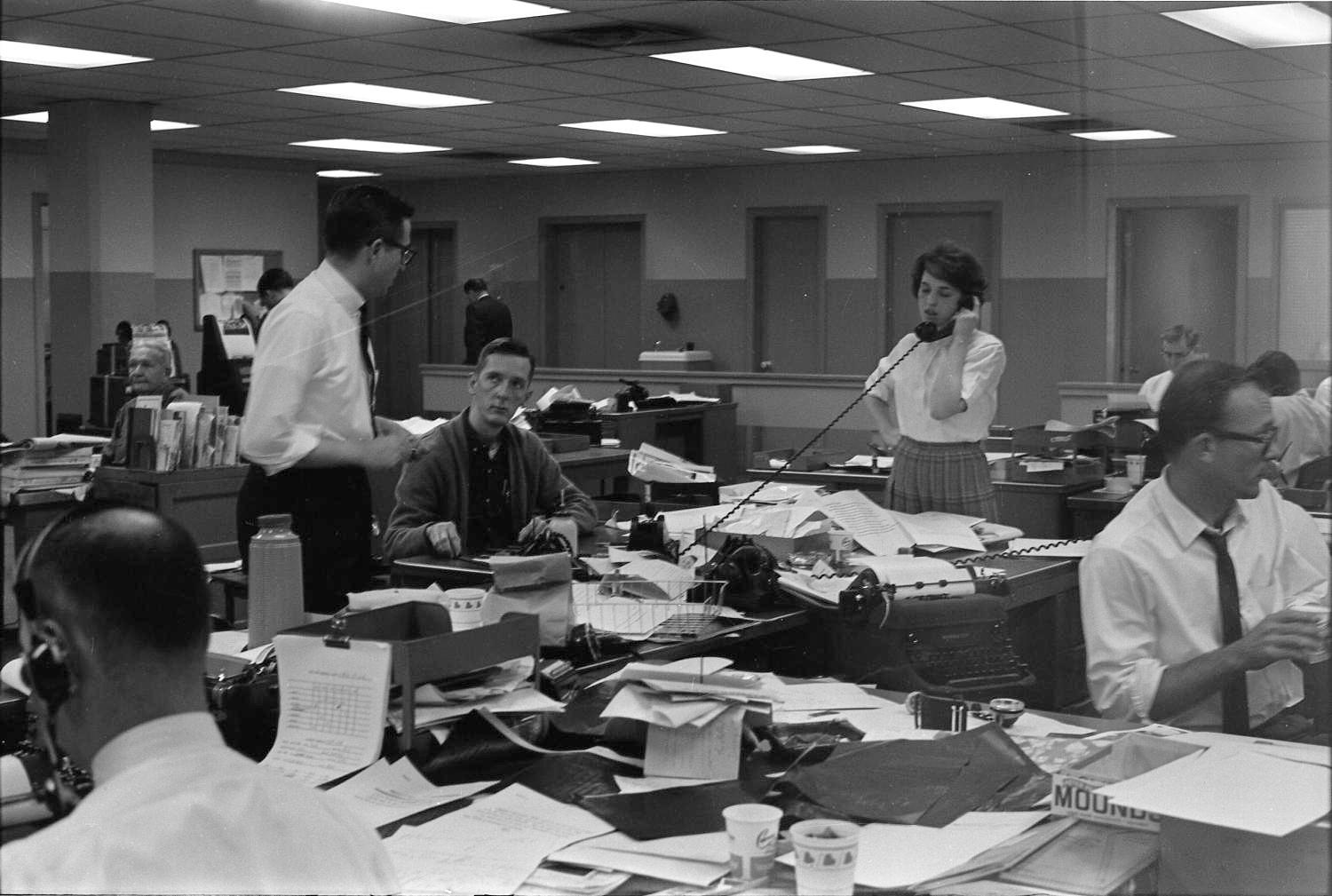What came over me to want to be a newspaperman? I’ve been told it was in my blood. My first act of journalism was to sift through someone’s wastebasket. Isn’t this what reporters do? It happened on the floor of the editor’s office at the Daily Traveler in Arkansas City, Kan. The editor, my father, looked down at little Fred with approval as I straightened out his wadded sheets of copy paper. Pop was a newspaperman through and through. He got a journalism degree from the University of Kansas in 1932 (as my sister would do and I as well, 34 years later) and went directly to work at his hometown newspaper, the Daily Traveler . He became its editor in the mid 1940s. A bachelor uncle died in 1951, leaving Pop $75,000, and he used that as seed money to buy a majority ownership of the smallest daily in the state of Texas, the Daily News-Telegram, published in Sulphur Springs, 80 miles east of Dallas.
So yes, newspapers were part of my life for as far back as I can remember. Another early memory is sitting on the lap of Oscar Stauffer, owner of a fleet of Kansas newspapers, including the Topeka Capital-Journal and the Daily Traveler. Oscar was visiting his Ark City paper and came to our house for dinner. Little Freddie was not having a good night. So Oscar picked me up, sat me in his lap, and began to gently swing his pocket watch back and forth, back and forth, until my yells became whimpers and I sweetly asked if I could be forgiven and have dessert after all.
One more thing about my father: I adored him. I wanted to be like him. And I later concluded of F. W. (Bill) Frailey that he was one of the best reporters of his time, his limelight hidden only by the fact that he practiced his craft in a small backwater town. Pop would leave the newspaper’s ramshackle offices at 228 Main Street at 8:30 in the morning, meet his friends at the Chuck Wagon Cafe for coffee and gossip, then make his way through the Hopkins County courthouse, City Hall, and police station, returning at 11 o’clock with enough stories to fill the front page. And have them all written and on the desk of his managing editor, Joe Woosley, by 2 o’clock sharp. Let there be a really big story in Sulphur Springs—like the evening a love triangle ended in gunfire and murder on the city square, or the wee hour when Sheriff Paul Ray Jones hunted down a burglar inside a supermarket—and Pop could fill that front page with a story and sidebars about a single event.
But I can’t overlook another thing that drew me into newspapers. I am hopelessly romantic. I get to the poignant part of a story I’m relating to my wife and I choke up. To my young mind, being a newspaper reporter was the height of romanticism. You dash to follow the cops to a collision. You ask questions of the mayor or the governor or the football coach. You dodge rocks in the middle of a riot. You’re where it’s happening and get to tell people all about it. To be where the action is—it was a powerful pull.
I did not become a newspaperman to save the world, or even change it in the slightest. My first wife became a lawyer to change the world, and in that she was mightily frustrated. I had a lot more fun chasing a story and not worrying about how it would affect the fate of mankind.
